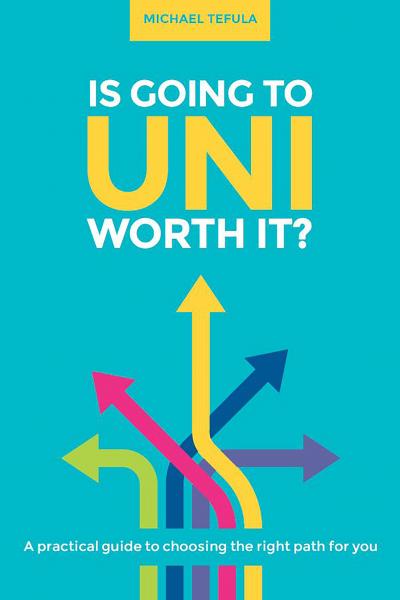Have students been mis-sold the benefits of a university education? Guest blogger Michael Tefula explains how to make a more informed decision.

University used to be one of the surest ways of getting ahead in life, and for some students, especially those who wish to pursue careers in fields where a degree is mandatory, the rewards of a university education can be transformative.
Yet, the value of a degree is arguably shrinking, and young people are starting to question whether £50,000 of student debt and an extra 9% “graduate tax” for 30 to 40 years (in the form of student loan repayments) will unlock as much value as is often advertised. It’s no wonder that while over half of students in 2012 believed that university was ‘good’ or ‘very good’ value for money, that fraction collapsed to 27% in 2021, according to survey data from the Higher Education Policy Institute.
Most young people will continue to choose university, simply because it is the thing that most young people do
University is no longer the surest way to do well after school. For example, young people can make their way to the top decile of earners with a high-skill apprenticeship in accounting, engineering, law, or even a skilled trade – a domain where the UK has such a shortage of talent that it’s possible for bricklayers to earn more than graduates.
Furthermore, a not so insignificant number of students who take the degree path actually end up worse financially. According to analysis by the Institute for Fiscal Studies, one in five students would be better off financially if they skipped the degree route altogether. Given how expensive the university path is today, and the high volume of graduates who compete for the same jobs, this is not surprising.
Naturally, some will argue that university isn’t just about the financial costs and rewards. The university experience provides an opportunity to grow in a multitude of ways while also enhancing one’s social skills and network. I agree. However, compare the personal development of an apprentice to that of an undergraduate and you’ll find that one candidate is more likely to end up better prepared for life than the other.
Apprentices learn how to deal with reality sooner than a typical graduate
The undergraduate spends most of their time in lecture halls and libraries, and outside of that, will mostly socialise with other students of a similar age and background. Assignments are mostly artificial, set in controlled and predictable environments, where outputs are graded on a discrete spectrum of performance.
Contrast that to an apprentice. Unlike the university student, an apprentice will immediately get to train and work in the real world with a variety of people across age groups and backgrounds. Apprentices learn how to deal with reality (with all its unpredictable nuances) sooner than a typical graduate. And this is part of the reason why seven times more people believe that an apprenticeship is better preparation for life than university, according to survey data by YouGov and the Times.
Despite the compelling offer of apprenticeships – and of course not everyone is suited to it, either – most young people will continue to choose university, often without question, simply because it is the thing that most young people do (around half of them take this path and there are calls for this proportion to grow even further).
By choosing university because it is the conventional thing to do, young people deprive themselves of precisely what they should be fostering under any effective education system—the ability to think critically. All pros and no cons make fertile ground for dogma, and if we continue to advise young people to choose the university path without question, we will simply instil a practice of choice without thinking.
In my book on this topic, I offer a way out of this mode of thinking by encouraging students to consider the decision of what to do after school in the context of the following broad questions. You can use these questions to quickly get a sense of whether someone would be well-suited to the university path or an apprenticeship.
These questions are ranked roughly in order of importance.
First, does the student know whether the career they would like to pursue requires a degree or not? (Doctors need one, while software engineers don’t.) Alternatively, does the student have an idea of what they’d like to do or not? (A university path has more optionality for people who don’t know what they would like to do in the future.)
Second, does the student perform best in an academic environment or outside of it? Some students thrive in classrooms but struggle in the world of work and vice versa. Indeed, once someone completes the mandatory part of their education, there’s no reason why they shouldn’t be matched immediately to environments where they’ll excel. For some students, that environment may be more practical than academic.
Third, does the student have a firm or at least basic understanding of how student loans work and their impact on future earnings?
Fourth, just how important is a high-wage career to them? This question is key because the earning potential of a Oxbridge or Russell group graduate with a strong degree subject is comparatively higher than is the case for other paths.
Finally, how appealing is the opportunity to cultivate a more active social life? (There are more social opportunities at a university campus than there are during an apprenticeship.)
Taken together, these questions provide ample opportunity to uncover the pros and cons of both routes. Whatever path a student might be considering, answering these questions will help them make a more informed decision and take ownership of their choice.
 Find out more
Find out moreUse Is Going to Uni Worth It? to support your students as they make the challenging decision about which path to take after school.